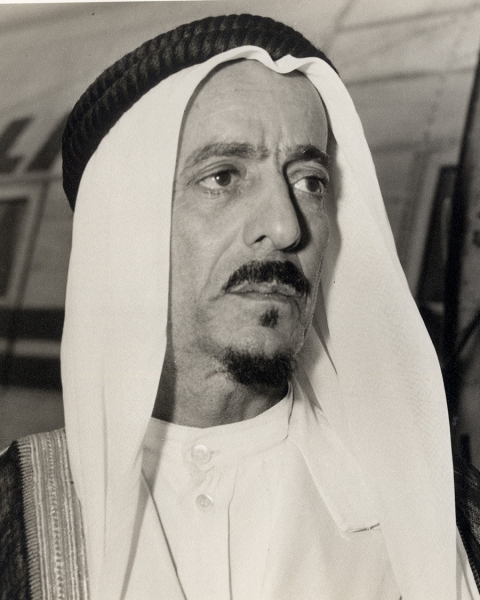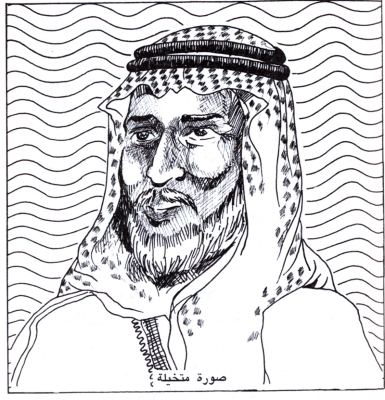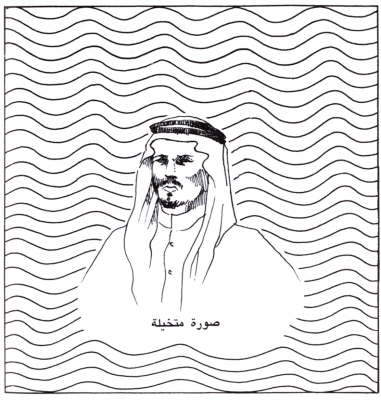
Abdullah al-Suleiman al-Hamdan (1885-1965) was the first Minister of Finance in the history of the Kingdom of Saudi Arabia and one of the prominent ministers during the reign of the Founding King Abdulaziz Bin Abdulrahman Al Saud. He represented the Saudi government in oil concession negotiations and was titled 'The Man of Difficult Tasks' by the founding king. During his tenure, the state budget witnessed an unprecedented leap, rising from thousands to millions of SAR for the first time in the Kingdom's history.
Abdullah al-Suleiman was one of the advisors to Founding King Abdulaziz and was entrusted with numerous responsibilities. He contributed to establishing the Council of Ministers and served as the head of the Defense Agency before it became a ministry. He also founded the first national cement factory in the Kingdom and was responsible for the establishment of al-Kaaba Kiswa Factory (currently the King Abdulaziz Complex for the Holy Kaaba Kiswa). Additionally, he spearheaded the creation of the agricultural development project in al-Kharj, one of the Kingdom's major agricultural initiatives. His service spanned nearly forty years of dedicated work alongside the Founding King.
Life of Abdullah al-Suleiman
Abdullah al-Suleiman was born in Unayzah Governorate, located in Qassim Province, at the center of the Kingdom, where he also grew up. Coming from a modest family, his father, Suleiman, worked in agriculture, while his elder brother, Mohammed, held a government position in Riyadh City. Torn between continuing his education and the need to improve living conditions, Abdullah studies in traditional religious schools, Katateeb, from an early age. He frequented scholars and religious teachers, memorized the Holy Quran, and studied Arabic and arithmetic. However, limited financial resources prompted him to seek better economic opportunities abroad.
Abdullah al-Suleiman's business
Abdullah al-Suleiman traveled to Iraq and Bahrain before reaching India, where he settled in Mumbai City in 1910. He worked as an employee at the al-Fozan Office, owned by prominent Unayzah merchant Abdullah al-Fozan. Demonstrating remarkable competence, he was quickly promoted to manager of the Mumbai branch. There, he learned the basics of correspondence and banking communications, and he also learned and became proficient in Urdu to ease his livelihood and work.
During his stay in India, Abdullah al-Suleiman lost both of his parents and was compelled to return to Bahrain, where his siblings resided. Taking on the responsibility of supporting and caring for them, he decided to start his business in Bahrain alongside his brother Hamad. They initially ventured into the pearl trade, which was a popular business at the time. Later, they expanded into exporting and importing products like rugs, agarwood, cardamom, and other commodities. Abdullah achieved notable success, ensuring a comfortable life for himself and his siblings until his business faced a period of stagnation, which disrupted his work and left him with significant financial debts.
Abdullah al-Suleiman with King Abdulaziz
Abdullah al-Suleiman received a telegram from King Abdulaziz, requesting a meeting with him. At that time, his elder brother Mohammed al-Suleiman worked in the royal court alongside six other men and participated in several battles with the king and his forces. After being injured in one of the battles and suffering a decline in his health, the king asked him to nominate someone else to take his place. Mohammed nominated his brother Abdullah, who quickly responded to the king's invitation to come to Riyadh.
Abdullah al-Suleiman was initially compelled to decline the founding king's offer due to the heavy burden of debts and financial obligations that left him unable to fulfill any other commitments. However, the king rejected his apology and promised to settle his debts, enabling him to dedicate himself fully to working as a scribe in the royal court. This change in circumstances completely transformed al-Suleiman's life.
Responsibilities of Abdullah al-Suleiman
Abdullah al-Suleiman became one of King Abdulaziz's advisors, entrusted with numerous responsibilities and tasks. In 1927, the king issued a decree to establish the Kaaba Kiswa Factory in Makkah al-Mukarramah and assigned al-Suleiman to oversee the project. He supervised the establishment of the factory and trained Saudi technicians. After four years, the first national Kiswa was produced in the country by Saudi hands.
In 1929, a Royal Decree established the Finance Agency, appointing al-Suleiman as its director. He developed a budget plan balancing revenues and expenditures, significantly increasing the national budget to millions of riyals. In 1932, following the establishment of the Ministry of Finance, he was appointed its first minister, becoming the first Minister of Finance in the Kingdom.
In 1932, King Abdulaziz selected al-Suleiman to establish the Council of Agents. He also founded the first national cement factory in the Kingdom, headquartered in Jeddah. In 1935, he became the head of the Defense and Military Affairs Agency before it was converted into a ministry.
Abdullah al-Suleiman and oil exploration negotiations
Abdullah al-Suleiman represented the Saudi government in financial negotiations and discussions with other countries as Minister of Finance. He played a pivotal role in successful negotiations that marked a significant milestone in the Kingdom's history, particularly those between the Saudi government, represented by him, and the 'Standard Oil of California.' This agreement led to the emergence of the oil industry in the Kingdom and became one of the key steps in fostering a progressive relationship between the Kingdom and the United States of America.
Abdullah al-Suleiman Charitable Foundation
Abdullah al-Suleiman established a charitable foundation bearing his name in 1965, officially registered with the Ministry of Social Affairs (now the Ministry of Human Resources and Social Development), with its headquarters in Jeddah City. The foundation actively engages in charitable work and community service across various fields.
In collaboration with the Abdullah al-Suleiman Charity Foundation and the College of Agriculture and Veterinary Medicine at Qassim University, the Abdullah al-Suleiman International Award for Scientific Innovation in Palm and Dates 'Jood' was established in 2017, with prizes amounting to SAR1 million. The award focuses on promoting scientific research in the field of palm and dates, covering aspects such as palm cultivation, date production, and related agro-industries. Its categories include Creative Work, Distinguished Scientist, Outstanding Production, and Model Project.
The death of Abdullah al-Suleiman
In 1953, while on an official mission in Germany, Abdullah al-Suleiman received news of the death of the Founding King Abdulaziz. The news deeply saddened him, prompting him to request his resignation from King Saud Bin Abdulaziz. In the late 1950s, al-Suleiman became ill, which weakened him, and he traveled abroad for treatment. He moved between Egypt, Germany, Lebanon, and Britain but ultimately returned to Jeddah City, where he passed away in 1965.
Related quizzes
Related articles


